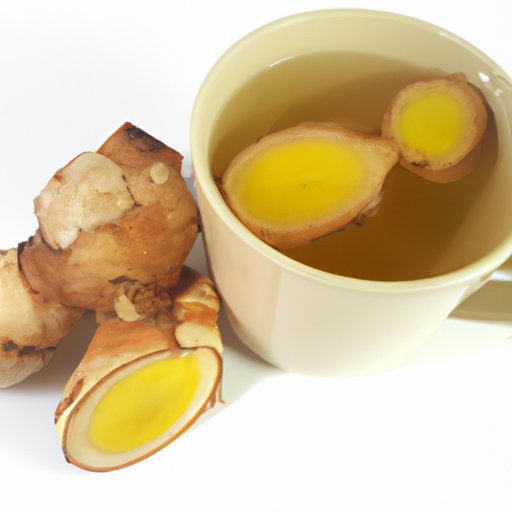
I. Introduction
Boils are a common skin problem that can be painful, unsightly, and sometimes even dangerous. They occur when hair follicles or oil glands get infected with bacteria and form a pus-filled lump. In this article, we’ll explore the various ways to get rid of boils, both naturally and with medical treatment.
II. Natural Remedies: 5 Ways to Get Rid of Boils at Home
When dealing with a boil, natural remedies can often be effective without causing side effects. Here are some of the best natural remedies:
- Warm compresses: Applying a warm, damp cloth to the boil can help draw out the pus and speed up the healing process. You can make a compress by soaking a cloth in hot water and wringing it out, then holding it on the boil for 10-15 minutes at a time, several times a day.
- Tea tree oil: This oil has anti-inflammatory and anti-bacterial properties that can ease the pain and reduce the size of a boil. Mix a few drops of tea tree oil with a carrier oil such as coconut oil, then apply to the affected area with a cotton ball.
- Garlic: Garlic has natural antibiotic properties and can be used both topically and in your diet. Crush a clove of garlic and place it on the boil, cover with a clean cloth or bandage. Also, add garlic to your meals, taking two cloves a day to keep your body healthy and going.
- Other natural remedies: Other natural treatments that may help include turmeric, apple cider vinegar, and Epsom salt baths.
III. The Dos and Don’ts of Boil Removal: A Complete Guide
Knowing the right steps to take when dealing with a boil is essential to avoid making the problem worse. Here are some dos and don’ts of boil removal:
- Don’t pop a boil: This can spread the infection and lead to more boils forming.
- When it’s safe to drain a boil: If the boil is large, painful, or interfering with daily activities, it may need to be drained by a doctor. Don’t try to drain it yourself unless you have experience in doing so.
- Steps to take to prevent infection: Wash the affected area with soap and water, keep it covered with a clean cloth or bandage, and change the bandage frequently.
- When to seek medical attention: If the boil becomes increasingly painful, spreads to other areas, or is accompanied by a fever, see a doctor immediately.
IV. Prevent Future Boils: 5 Tips for Keeping Your Skin Clear
The best way to prevent boils is by keeping your skin healthy and clean. Here are some tips:
- The importance of good hygiene: Wash your hands regularly, shower after exercise, don’t share personal items, and keep your skin clean and dry.
- Managing stress: Stress can weaken the immune system, making you more susceptible to infections. Practice stress-reducing activities like yoga, meditation, or exercise.
- Eating a healthy diet: A nutrient-rich diet can boost your immune system and lower your risk of developing boils. Focus on eating fruits, vegetables, whole grains, and lean proteins.
- Other lifestyle changes to consider: Avoid tight-fitting clothing, use a towel to sit on in public places, and avoid shaving directly over boils.
V. Out, Damned Boil: How to Treat Boils with Over-the-Counter Medications
If natural remedies aren’t working or if the boil is severe, over-the-counter medication may be necessary. Here are some options:
- Topical antibacterial ointments: These can help kill the bacteria causing the boil and promote healing.
- Pain relievers: Over-the-counter pain relievers like ibuprofen can help reduce pain and inflammation caused by a boil.
- Other over-the-counter options: Antiseptic solutions like hydrogen peroxide and rubbing alcohol can also help clean the affected area and prevent infection.
VI. When to Call the Doctor: Signs Your Boil Needs Medical Attention
While most boils can be treated at home, there are some situations where medical attention is required. Here are some signs to look out for:
- Warning signs to look out for: A very large boil, one that’s on the face or near the eyes, boils that keep recurring, and a fever all require a doctor’s attention.
- What a doctor can do to help: A doctor can drain the boil safely and prescribe antibiotics if necessary.
- How to prevent future boils: A doctor can also help you identify the underlying cause of your boils and recommend lifestyle changes or medical treatment.
VII. Conclusion
Boils can be a painful and frustrating problem, but with the right remedies and prevention methods, they can be dealt with effectively. Always take care to avoid popping them, and seek medical attention if you’re unsure about whether or not to drain them yourself. With these tips and treatments, you can rid yourself of boils and enjoy clearer, healthier skin.





